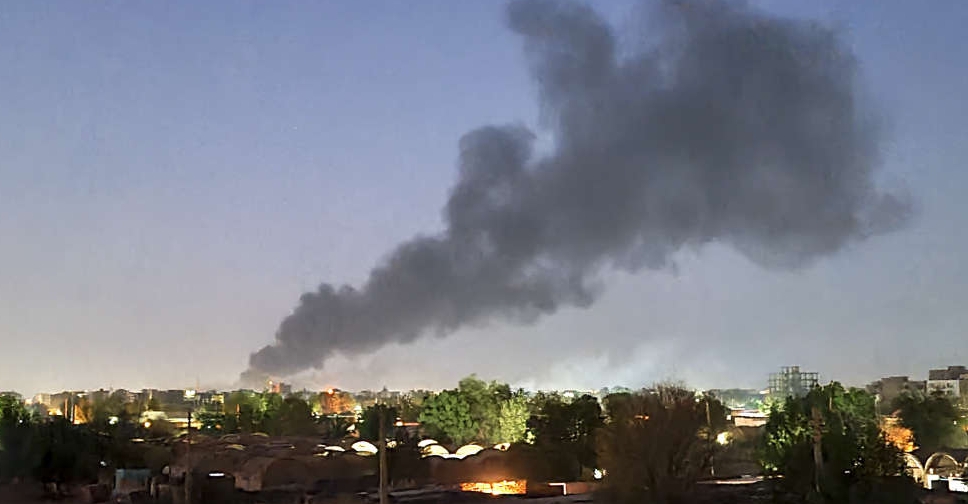
Violence in Sudan's capital escalated on Wednesday with fierce clashes and air strikes, but rival military factions were reported to be close to a ceasefire agreement in talks in Saudi Arabia.
Residents reported ground battles in several neighbourhoods of Khartoum between the army and the paramilitary Rapid Support Forces (RSF), as well as heavy gunfire in the north of Omdurman and the east of Bahri, two adjacent cities separated from Khartoum by the River Nile.
The army has been pounding targets across the three cities since Tuesday as it tries to root out RSF forces that have taken control of large residential areas and strategic sites since early in the conflict that erupted on April 15.
"There's been heavy air strikes and RPG fire since 6:30 a.m.", said Ahmed, a resident of the Bahri neighbourhood of Shambat. "We're lying on the ground and there are people living near us who ran to the Nile to protect themselves there under the embankment."
Army and RSF delegations have been meeting since the end of last week in talks sponsored by the United States and Saudi Arabia in the Saudi city of Jeddah on the Red Sea.
Negotiations aim to secure an effective truce and allow access for aid workers and supplies after repeated ceasefire announcements failed to stop the fighting.
After days of no apparent movement, a mediation source told Reuters on Wednesday that the negotiations had made progress and a ceasefire agreement was expected soon.
A second source familiar with the talks said a deal was close. Talks continued late into the night.
US Under Secretary of State Victoria Nuland earlier said US negotiators were "cautiously optimistic" about securing a commitment to humanitarian principles and a ceasefire but were also looking at appropriate targets for sanctions if the warring factions did not back this.
The conflict has created a humanitarian crisis in Africa's third-largest nation by area, displacing more than 700,000 people inside the country and prompting 150,000 to flee to neighbouring states. It has also sparked unrest in Sudan's western Darfur region.
The UN World Food Programme said that up to 2.5 million more Sudanese were expected to fall into hunger in the coming months because of the conflict, raising the number of people suffering acute food insecurity to 19 million.

 UK inquiry finds 'chilling' cover-up of infected blood scandal
UK inquiry finds 'chilling' cover-up of infected blood scandal
 Iranian President Raisi killed in helicopter accident, state media says
Iranian President Raisi killed in helicopter accident, state media says
 ICC prosecutor seeks arrest warrants for Israeli, Hamas leaders
ICC prosecutor seeks arrest warrants for Israeli, Hamas leaders
 Assange given permission to appeal against US extradition
Assange given permission to appeal against US extradition
 Israel intends to broaden Rafah sweep, Defence Minister tells US
Israel intends to broaden Rafah sweep, Defence Minister tells US




